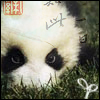
The Handmaid's Tale
by Margaret Atwood
311 pages (trade paperback)
Genre: Fiction/Literary/SF
In the Republic of Gilead, a religious fundamentalist government ruling the former United States of America, there awaits a woman called Offred. Offred is a Handmaid, a fertile woman given six years--three chances--to produce a child for one of the elite Commanders as a surrogate for his childless Wife. She lives every day and every night, waiting for a spiritual surrender she is too cowardly to accept. Once, Offred had her own non-patronymic name, and she was married to a man named Luke with a young daughter. But her daughter has been adopted by some nameless Commander's household; what else does she live for? Her fundamental uncertainty lies at the heart of The Handmaid's Tale.
I first read this novel, one of Atwood's most renowned, about two years ago. I picked it up on a whim at the library, attracted by the cover; it introduced me to the subgenre of literary dystopic fiction, after which I read its original inspiration 1984. As a simple story--that is, setting aside literary merit--the novel just works. I sympathized immediately with the narrator (whom I shall call June, although her name is only deducible after reading most of the book) and her world's tragedies, particularly the political demise of democracy and feminism. Atwood also sets her tale in the remnants of Harvard Yard, which I'm sure will be amusing to those of you more familiar than I am with the area.
Atwood's prose shines like a full moon through sheer white curtains: subtle, elegant, and veiled. She writes with sparse beauty, interleaving strange yet familiar images of flowers, eggs, night, and silence in a purposeful vignette structure framed by the epilogue (pseudo-commentary titled "Historical Notes"). And her world-building grows outward from June's narrative, pervading the reader's sense of setting without needless exposition. The setting qualifies this Atwood novel as firmly science fiction, even if the author would not categorize it as such, and its literary qualities recommend comparison to Kazuo Ichiguro's Never Let Me Go or Maureen McHugh's Nekropolis.
I am intrigued by the themes of isolation, waiting, and illusion, three different but not dissimilar concepts that Atwood intertwines. The story remains inherently untrustworthy and unverified, unverifiable; June even states more than once that "I don't want to be telling this story," or that she is not reconstructing her memories in truth. And then I am struck by passages like this one, a snippet of narration that occurs while June prepares for the monthly Ceremony:
I wait, for the household to assemble. Household; that is what we are. The Commander is the head of the household. The house is what he holds. To have and to hold, till death do us part. The hold of a ship. Hollow.
Hollow feels like an apt description of Gileadean society, ironic given its emphasis on fertility; hollow is also an apt description of June until her illicit affair with Nick. This tale is obviously a story warning against the dangers of fundamentalism, but what does Gilead do right (if anything)? Like any totalitarian government, it wrought terrible cruelties. And like any structure of power, it left an indelible impact. Maryann Crescent Moon, Professor of Caucasian Anthropology, claimed that Gilead redrew the map of the world. In the end, this is perhaps what I love most about The Handmaid's Tale--the clichéd but oh-so-possible sense of DOOM.